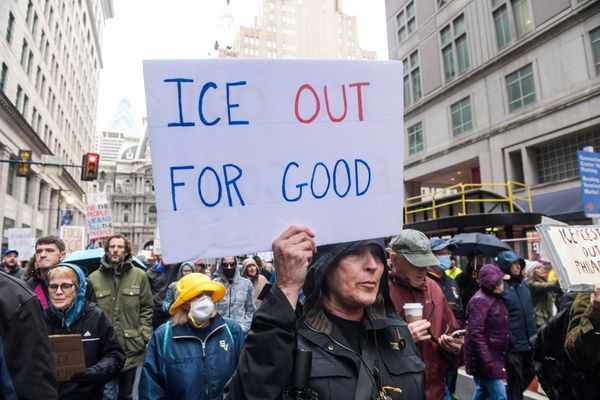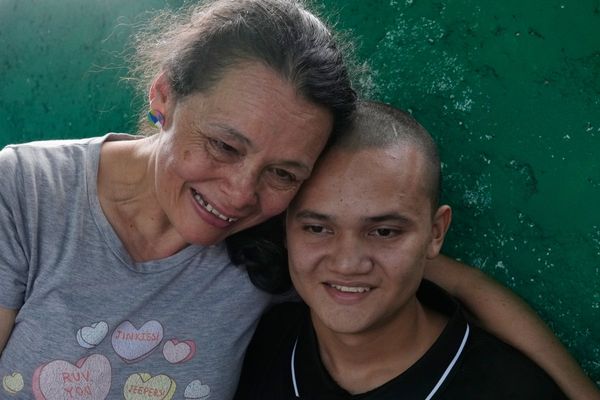A PALESTINIAN filmmaker who was brutally attacked by Israeli forces weeks after winning an Oscar has said that the award “didn’t mean anything”.
Hamdan Ballal, who is one of four directors for the documentary No Other Land, was detained, handcuffed, and blindfolded, by the Israeli military and later released.
The film, about the disputed West Bank, won the Oscar for best documentary feature film on March 2.
It comes as another wave of Israeli air strikes have pushed the death toll in Gaza above 52,200.
Writing in the New York Times, Ballal told of his experience, how he feared he would be killed, and that it was the “worst moment of my life”.
He was left hospitalised after the brutal attack.
“It’s hard to put into words how that moment felt,” he said of the Oscar win.
“It was one of the most incredible moments of my life.
“Three weeks later, I was brutally attacked in my home and arrested.
“In an instant, it was as if the Oscars had never happened, as if the award didn’t mean anything.”
He added: “We made our movie in order to bring attention to the situation where I live, to try to bring change to our communities, but when I was attacked, I realized that we were still trapped in the same grinding loop of violence and subjugation.”
Relaying his experience of the attack on March 24, during Ramadan, he described how he saw “a settler and two soldiers coming down the hill toward me”, telling his wife to keep herself and their three young children inside.
Ballal wrote: “I recognized the men coming toward us. They met me outside the door of my home and started beating and cursing me, mocking me as the ‘Oscar-winning filmmaker’.

“I was kicked and spat on. I felt immense pain and fear.
“I could hear my wife and kids screaming and crying, calling for me and telling the men to go away. It was the worst moment of my life.
“My wife and I both thought I would be killed. We feared what would happen to my family if I died.”
Ballal said he was then handcuffed, blindfolded, and beaten, being held on a military base until he was released the next day.
He insisted that the herding communities in Masafer Yatta, in the southern West Bank, “does not know only violence”.
But, Ballal explained that the near “daily violence” is impacting the region's ability to farm, produce food and, maintain its traditions.
“On the day of the attack, alongside the fear, I felt something else I didn’t expect: Heartbreak,” Ballal wrote.
“My heart was broken from the disappointment. From the sense of failure. From the powerlessness.
“Three weeks earlier, on the Oscar stage, I had a taste of power and possibility. But even though our movie received global recognition, I felt I had failed — we had failed — in our attempt to make life better here.
“To convince the world something needed to change. My life is still at the mercy of the settlers and the occupation. My community is still suffering from unending violence.
“Our movie won an Oscar, but our lives are no better than before.”
It comes after the Academy of Motion Picture Arts and Sciences apologised following criticism for its failure to support Ballal while he was detained.
On Sunday, it was confirmed that the Palestinian death toll from the 18-month Israel-Hamas conflict had grown to 52,243.
Hospitals in the Gaza Strip received the remains of 51 Palestinians killed in Israeli air strikes in the space of 24 hours on Sunday.
Israel ended its ceasefire with Hamas by launching a surprise bombardment on March 18, and has been carrying out daily waves of strikes since then.
Since then Israeli forces have expanded a buffer zone and encircled the southern city of Rafah, now controlling around 50% of the territory, and sealed off the territory’s two million Palestinians from all imports, including food and medicine, for nearly 60 days.
Aid groups say supplies will soon run out and that thousands of children are malnourished.
The overall death toll includes nearly 700 bodies for which the documentation process was recently completed, the local health ministry said in its latest update. The daily toll includes bodies retrieved from the rubble after earlier strikes.
Israeli strikes killed another 12 people after the update. Eight of them, including three children and two women, were killed in a strike on a tent in the southern city of Khan Younis, according to Nasser Hospital. A strike in the central city of Deir al-Balah killed four people, according to Al-Aqsa Martyrs Hospital.







